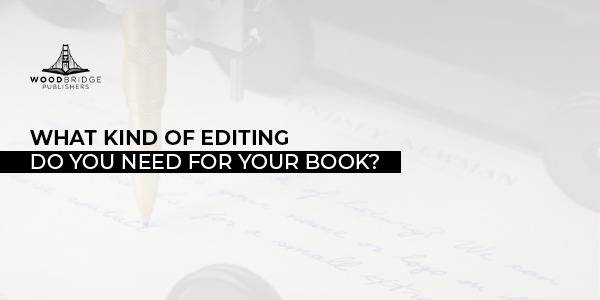As an author, you would know that the process of writing a book can be very long. Not only do you have to write each page and ensure that it translates your thoughts and ideas the way you hoped, but you also have to work on the post-writing part: the editing.
Editing a book is essential. Actually, editing any piece of writing is essential, especially if your work is going to be read by other people. This is because your writing has to be understandable for the audience that you intend your work to be received by. As a writer, you may not notice areas where editing is required, which is why many authors opt to hire an editor. An editor can help you determine what kind of edits are required for your work, and where you can make edits in your work. There are many different kinds of editing that can be done for writing. Depending on what kind of book you are writing and how you intend for the tone of your book to be, the kind of editing you need may differ. Your editor may also suggest what kind of editing is best suited for your book based on their initial evaluation of it.
Different Types Of Editing
The different kinds of editing are explained below:
Basic Editing
This kind of editing focuses on grammar, punctuation, and spelling. Editors may feel that your book is structurally strong and reads well, but there are few areas that can be improved and enhanced through basic editing. Usually, editors who work on greater edits such as Developmental Editing or Line Editing come back to look at Basic Editing to ensure the book reads well as a whole. However, books that do not require heavy editing are typically still looked at for Basic Editing to certify the book is still perfectly legible and does not have any errors or inconsistencies.
Line Editing
Line Editing (or Stylistic Editing) looks at the writer’s individual tone, emotion, flow, grammar, style, and language. This type of editing is heavily focused on ensuring that the book flows in a consistent manner and looks at each line carefully to see if any restructuring is required. Each piece of writing has a different tone that is reflective of the author’s style, which is why Line Editing is very particular in the way it is conducted.
Developmental Editing
Developmental Editing is exactly as it sounds: it develops your writing and enhances the overall tone and language. This editing looks at the big picture of your writing and can even mean the editor suggests removing certain words, sentences, or paragraphs, so that your overall story makes sense and is conveyed in a way that will be stronger and easier for the audience to grasp.
Proofreading
When you have finished writing a book, article, or any piece of literature, it is important to proofread to go through the finished work. Proofreading includes paying extra attention to punctuation and grammar. Sometimes, editors that are proofreading work also look at the structure and flow, but proofreading is mostly focused on the edits found on the surface.
Most of the time, writers cannot assess what kind of editing is most suitable for their work, which is why professional editors can guide you best. If you are unsure about what type of editing your book requires, refer to a professional editor who can review your work and give you their recommendation.



